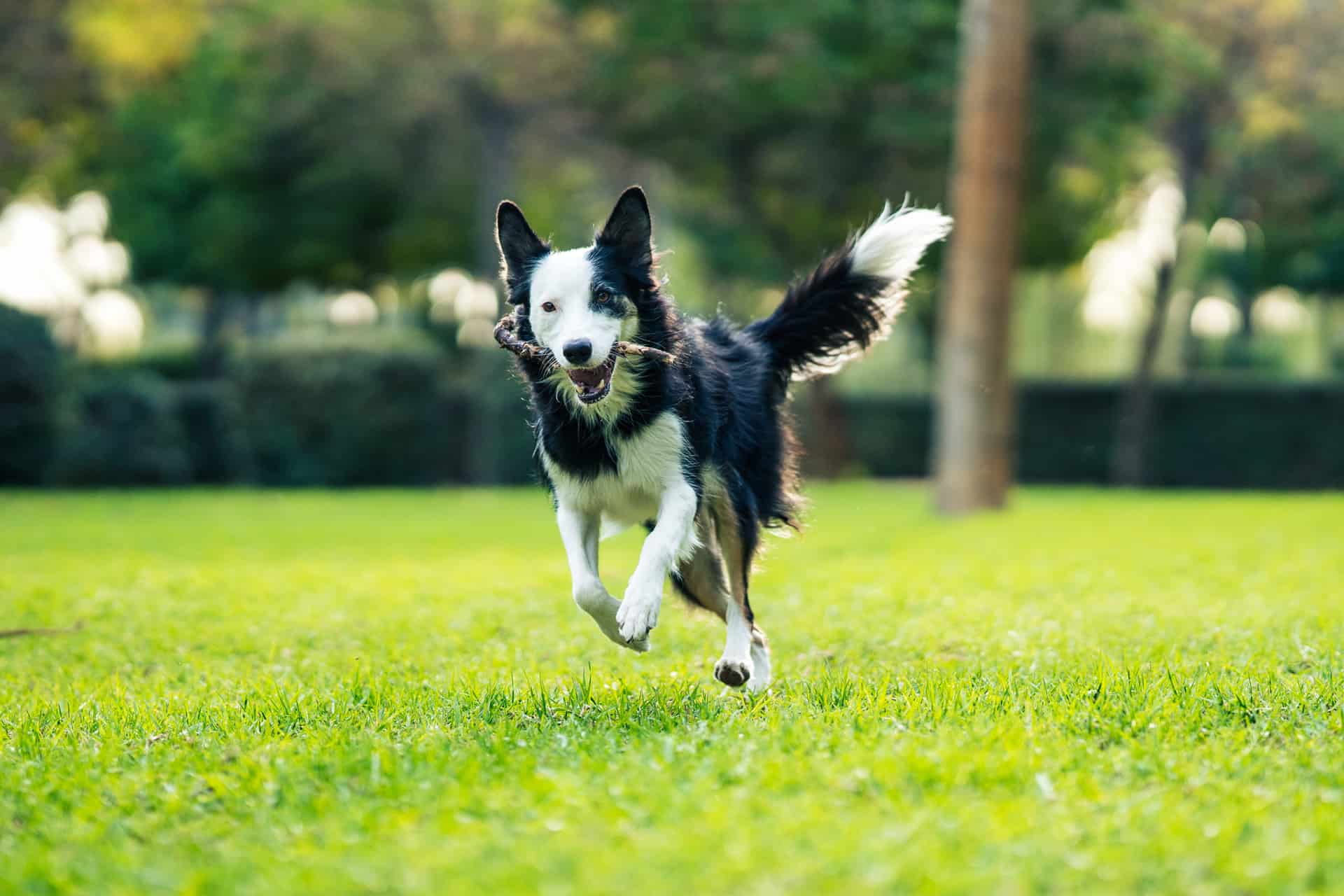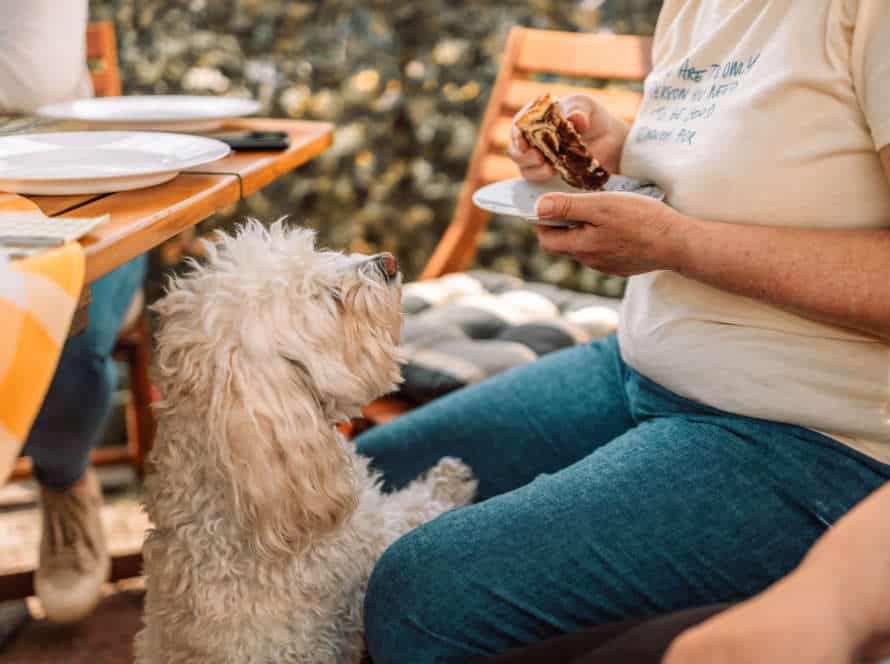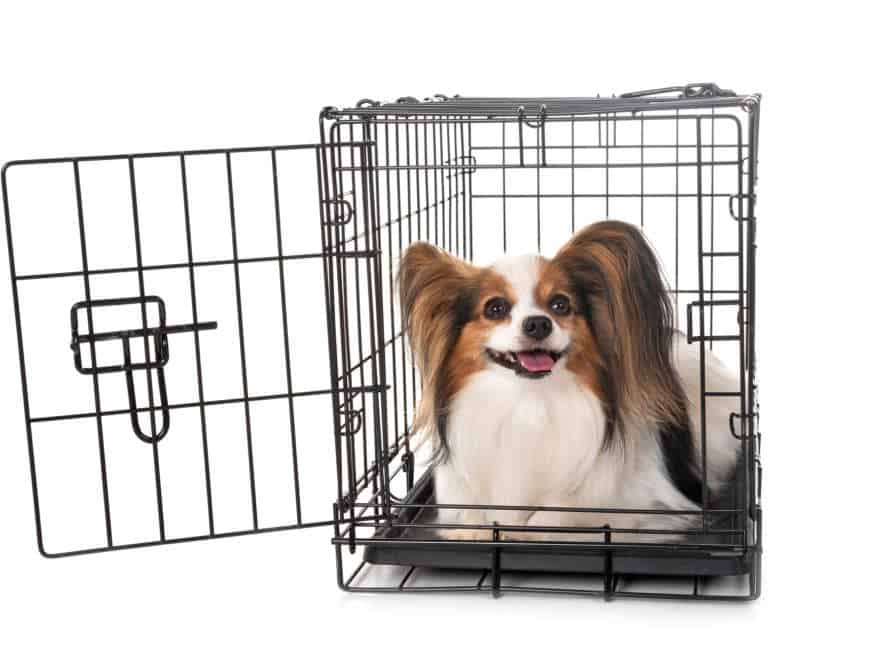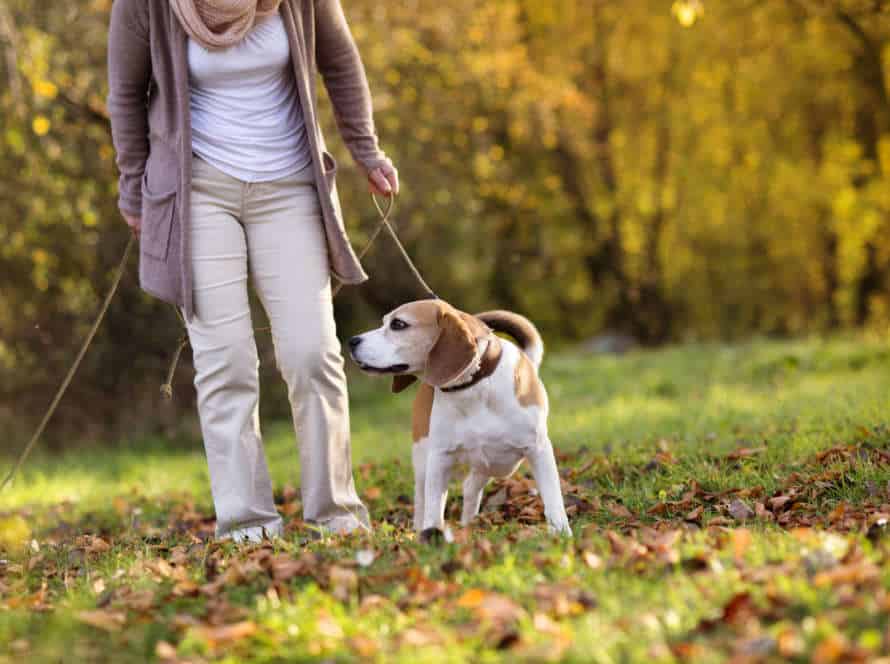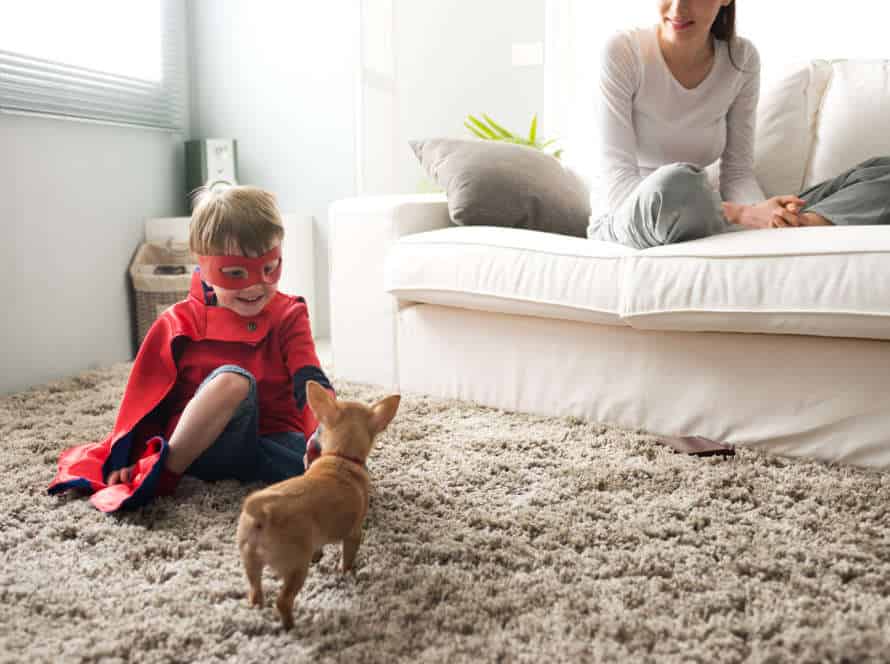When to Seek Professional Help for Puppy Biting Issues
Puppy biting is a common problem that all dog owners may face during training. Puppies naturally explore their surroundings by biting and nipping. But it’s important to know when to seek professional help if the behavior gets too much or aggressive.
Here are some signs that it’s time for help:
- If your puppy bites too hard and leaves bruises or breaks your skin.
- If your puppy growls, snaps, or lunges at you or other people.
- If your puppy shows distress, such as shaking or hiding after biting.
- If your puppy’s biting behavior hasn’t improved after various training techniques in several weeks.
Seeking help from a certified dog trainer or animal behaviorist can help address your puppy’s biting issues and improve their behavior. Remember, early intervention is key for training a good-natured and happy pup.
Understanding Normal Puppy Biting Behavior
Puppy biting is typical. Young puppers have bundles of energy, so they will nip and bite while playing. This behavior is normal and should not be discouraged. However, if the bites become aggressive, it’s important to step in.
Puppy biting vs aggressive biting
Puppy biting is a normal part of their growth. It’s important to know the difference between regular puppy biting, and aggressive biting.
Regular puppy biting is gentle, and just a way for them to explore and interact. It’s often done while playing, and they’ll usually stop when they’re told ‘no’. Aggressive biting is different. It’s forceful, and can be accompanied by growling, snarling, or showing teeth. This can be caused by fear, anxiety, or territorial aggression.
If your pup’s biting is getting worse, or is hurting people, it’s best to get help from a professional trainer or vet. This will help stop it before it gets worse.
Bite inhibition training
Bite inhibition training is a must for all pup owners. It teaches the pup to control the force of their bites and mouth their owners gently. It’s important to start this training early, to prevent aggressive behavior and biting issues. Here are some tips to help you get started:
- Start with socialization and positive reinforcement training.
- Teach your puppy to mouth gently. Give a firm “no” or withdraw attention when they bite too hard.
- Use a bite inhibition toy or bone to help them learn how to bite and chew gently.
- If your pup shows signs of aggression, like growling, snapping, or biting without provocation, get professional help. A trainer can assess the pup’s behavior and design a customized training plan.
Remember, patience and consistency are key. As a bonus tip, use positive reinforcement like praising and treats to encourage good behavior.
The importance of socializing your puppy
Socializing your pup is a must. It helps with healthy habits and keeps nasty behaviors, like biting, away. If a pup isn’t socialized, they may get scared or aggressive, which can be dangerous.
Here’s why it’s important:
- Positive Interactions: It teaches puppy how to get along with people and other dogs.
- Reduce Fear: It helps them not be scared of new things they come across.
- Prevent Biting: It stops them from using their mouth to communicate. If there’s too much biting, get help from a professional. They can explain why pup is biting, show you how to handle it, and create a training plan.
Signs That Your Puppy’s Biting May Be A Problem
Got a puppy who bites? That’s normal, but it can be a real issue if not addressed soon. Know when to get professional help for the best results.
Signs you need help with puppy-biting? Here’s a few:
Your puppy is biting too hard and too frequently
Puppies are known for their playful and curious nature. But, their biting can sometimes be too hard and too frequent. Some biting is normal; however, too much may be a sign of a problem. Here are some signs that your pup’s biting may be an issue:
- Even after verbal correction, your pup bites hard.
- Your pup’s biting is leading to harm or injury for you or others.
- The biting is becoming more intense or frequent.
- Your pup is showing signs of aggression with growling or snarling while biting.
If any of these things are true, it is important to seek help from an animal behaviorist or dog trainer. They can provide specialized guidance and training to correct problem behaviors.
Your puppy’s biting behavior is not responding to training
Puppy biting is a normal thing. But if it is too much or aggressive, you should think of getting help from professionals.
Here are signs that your pup’s biting may be a problem:
- Your pup’s bite is causing pain or injury.
- Your pup is biting with aggression, growling or snarling during play.
- Your pup is not listening to training commands like being redirected to a toy or a ‘no’.
- Your pup is biting due to fear or anxiety.
If you see any of these signs, it is important to get help from an expert. They can discover why your pup is biting and give useful advice to solve it. Remember, this is essential for your pup’s safety and the safety of those around.
Your puppy’s biting is causing injury or harm to others
When your pup’s biting hurts others, you might need expert help. Here are some signs that your puppy’s biting could be a problem:
- Biting is often and strong.
- Your pup still bites after being told “no” or “stop”.
- Biting strangers or visitors.
- Bites break skin or cause bruising.
- Biting because of fear or anxiety.
If you see any of these signs, get help from a qualified trainer or behaviorist for your pup. Don’t delay, or biting could become a danger to others.
Pro Tip: Reward nice behavior, like licking, not biting.
Why You Should Consider Professional Help
Puppy biting and other misbehaviors? Hard to handle alone. But, having a pro can really help. Here’s why.
Benefits of professional help for puppy biting? Plenty! It could be the answer you’re looking for.
Professional trainers have experience with puppy biting issues
Puppy biting is a normal thing, but it can become a problem if not taken care of right away. Professional help can be useful to stop this behavior and make sure your puppy becomes a well-mannered adult dog.
Trainers know what to do with puppy biting issues and can create a plan that fits your puppy’s needs. Advice on how to prevent biting and teaching the proper behavior can also be provided.
If your puppy is biting too much, hurting someone, or showing fear or aggression, professional help is essential. A trainer can evaluate the situation and decide what should be done.
Getting help early makes a lot of difference for your puppy’s future. If you’re having difficulty with puppy biting, don’t wait to ask for help.
Professional trainers can determine the root cause of your puppy’s biting
Puppy biting is a worry for many new pup owners. It can seem like a huge problem to tackle alone. Professional dog trainers can help you figure out why your puppy is biting and design a tailored plan.
Here’s why pro help is great for puppy biting:
- Trainers know how to read a pup’s behavior and figure out the root cause of the biting.
- They have different approaches to help with the biting. Plus, they can craft a plan just for your pup.
- This also helps you learn more about your puppy’s behavior and create a closer connection.
- If you have tried other ways to stop the biting, pro help can give you the support you need to make positive changes.
Remember, it’s best to get help early for puppy biting issues – professional help will give your pup the best chance for success.
Professional trainers can provide a customized training plan for your puppy
Struggling with puppy biting? Time to find professional help! Trainers have the skills and knowledge to assess your pup’s biting, then design a personal plan to solve it. Here are benefits of expert help:
- Personalized Approach: Trainers will evaluate your pup’s biting and create a plan for it – not a generic one.
- Faster Results: Professional training can get you results quicker, using techniques to teach your pup good habits.
- Peace of Mind: Hiring a pro gives you peace of mind, knowing an expert is guiding you.
If puppy biting is unmanageable, find a pro! They’ll craft a plan to get you and your furry friend back on track.
When to Seek Professional Help
Puppy biting can be a common problem for owners. To make sure that your pup is trained and this behavior is corrected, you should get help from professionals. There are certain moments in the puppy’s life when you should get professional help for biting issues. Here, we will look at when to seek help.
You have tried all the recommended training methods but the biting continues
If your pup’s biting still persists, even after trying all the usual training methods, it might be time to get some expert help.
Professionals who train and understand how dogs behave can help you with your pup’s biting.
Here are some signs that you should call for help:
- Biting is growing more aggressive or frequent.
- Biting is causing injury or bleeding.
- Your pup has other aggressive or fearful behavior.
A pro can work out what’s behind your pup’s biting and give you tailored advice. Get help soon and it’ll be easier to fix the issue.
Your puppy’s biting behavior is starting to become a safety concern
Puppy biting can be common, yet when it becomes a safety concern, getting professional help is key. Here are some signs that show you need to get professional guidance for your pup’s biting patterns:
- Bite Inhibition Issue: Puppies learn bite inhibition when playing with their siblings. This is the power to control how hard they bite. If your pup bites hard and there’s no improvement, seek professional help.
- Aggressive Biting: If your pup is biting aggressively and displaying signs of territorial aggression or fear biting, expert assistance must be found.
- No Progress: If you’ve been consistently trying to manage the biting but without success, a professional’s aid is vital.
Remember, pups grow up quickly and their behaviour needs to be tackled before it turns into a bigger problem. Getting help from a professional dog trainer or behaviourist will ensure your pup grows into a safe and well-mannered companion.
Your puppy’s biting behavior is impacting their quality of life
Uncontrolled biting in puppies can be really bad. It can lead to pain and injuries, and can even cause behavior problems in adulthood. So, it’s important to spot the issues early and get help if needed.
Here are some signs that your pup’s biting is a problem and you should get help:
- Injuries from the biting are getting worse.
- Biting is aggressive and accompanied by growling.
- Puppy is biting out of fear or anxiety.
- Training isn’t helping.
It’s best to get professional help as soon as possible. A trainer can figure out the cause and give tailored advice to help your pup stop biting.
What to Expect When Seeking Professional Help
Wanting prof. help for puppy biting can benefit both pup and owner. A pro can give guidance and support to both of them for handling the issue. Before seeking prof. help, it’s important to know what to expect. Here, we will talk about expectations for seeking prof. help to tackle puppy biting problems.
The initial consultation
Need help for your pup’s biting issues? Get a professional! Expect an initial consultation with a dog behaviorist or trainer. They’ll ask questions about your pup’s behavior, biting incidents, and environment. Also, they’ll observe your pup and do a physical examination.
The overview of the underlying causes of your pup’s biting will be given to you. Plus, a targeted training plan with positive reinforcement techniques, socialization strategies, and management tools. Don’t delay if your pup’s biting is severe; get help right away.
Pro Tip: Training with positive reinforcement and early intervention are the best way to address puppy biting. Choose a pro who uses positive reinforcement and has experience with pups with similar issues.
The training process and timeline
Professional help can be super useful to solve puppy biting issues. It usually goes in different stages, with each having its own timeline. Here’s an idea of what to expect:
- Evaluation: The trainer will check the seriousness of the biting issue and find out the pup’s background.
- Customized Plan: They will create a plan based on what they saw during the evaluation.
- Training Sessions: Usually last 1-2 hours and cover basics like obedience, socialization, and bite inhibition exercises.
- Practice at Home: You must practice what the trainer taught between sessions.
- Follow-up: Checkups to evaluate progress and change the plan if needed.
The timeline to deal with puppy biting depends on the behavior’s intensity and the owner’s dedication.
The cost of professional help and available resources
Struggling with puppy biting issues? Professional help can be a solution. But before deciding, understand the cost. On average, a one-hour consultation is around $100. Training packages can cost $700 or more.
Research available resources like online courses, books, and training videos. These can be accessed at little to no cost and provide guidance.
Remember: every puppy is unique. Biting behavior may be a temporary phase. With consistent training and patience, problems can be prevented or addressed.
Frequently Asked Questions
Q: How do I know when my puppy’s biting is becoming a serious issue?
A: If your puppy’s biting is becoming aggressive or causing harm, it’s important to seek professional help.
Q: Can puppy biting be trained out of them?
A: Yes, with proper training and consistency, puppy biting behavior can be corrected.
Q: What kind of professional should I seek help from?
A: A reputable and experienced dog trainer or behaviorist can provide guidance and support for puppy biting issues.
Q: Is it ever too late to seek professional help for puppy biting?
A: No, it’s never too late to seek professional help. It’s important to address aggressive or harmful behavior as early as possible, but behavior can still be corrected in older puppies or adult dogs.
Q: How long does it usually take to correct a puppy’s biting behavior?
A: It depends on the severity of the behavior and the consistency of training. Some puppies may show improvement after just a few weeks of training, while others may take several months.
Q: How much does it cost to seek professional help for puppy biting?
A: The cost can vary depending on the trainer or behaviorist, the severity of the behavior, and the amount of training required, but it’s important to consider this an investment in the lifelong health and happiness of your puppy.

